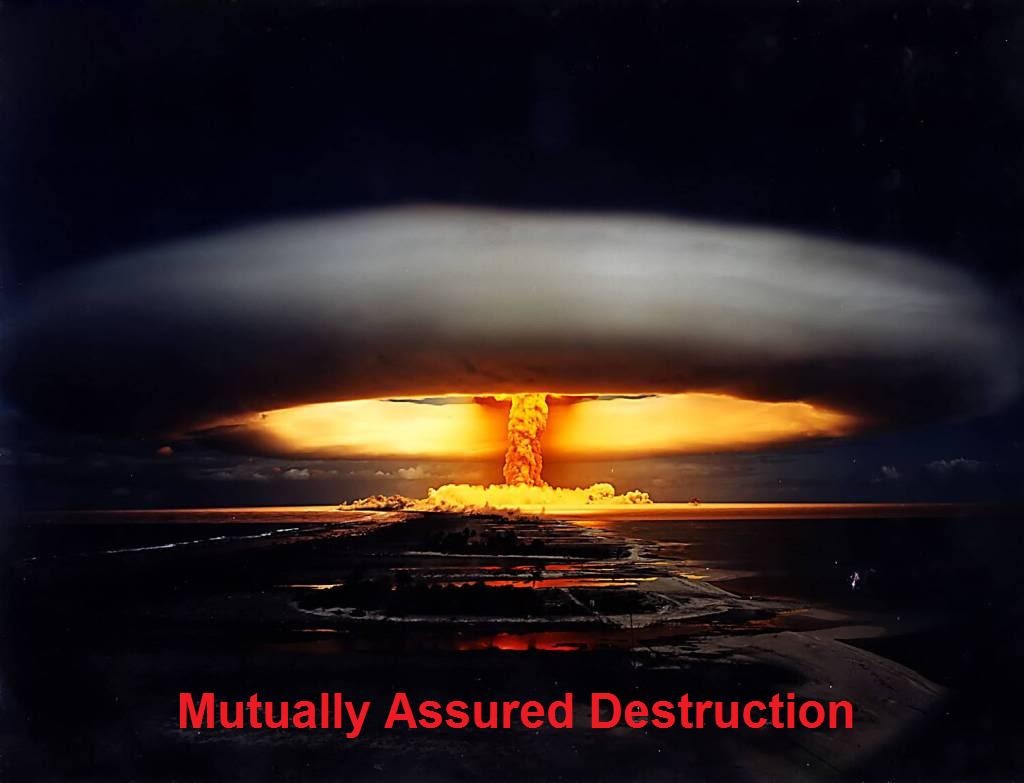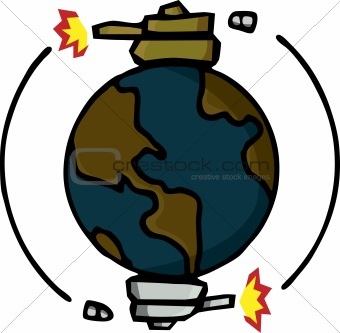“If you don’t like us, don’t accept our invitations and don’t invite us to come to see you. Whether you like it or not, history is on our side. We will bury you.”
Nikita Khrushchev, November 18, 1956
Nikita Khrushchev, November 18, 1956
Mutually Assured Destruction
•MAD
•The testing of larger and larger weapons made this a major issue in the 1960s
•Partial Test Ban Treaty resulted after Cuban Missile Crisis and fear of MAD
•Became major focus for Richard Nixon as part of his détente policy
•The testing of larger and larger weapons made this a major issue in the 1960s
•Partial Test Ban Treaty resulted after Cuban Missile Crisis and fear of MAD
•Became major focus for Richard Nixon as part of his détente policy
Summary
Mutually assured destruction was a big part of Nixon's detente. It was the biggest deterrent in keeping the peace with nuclear weapons, however, people were still scared to death of it actually happening.



